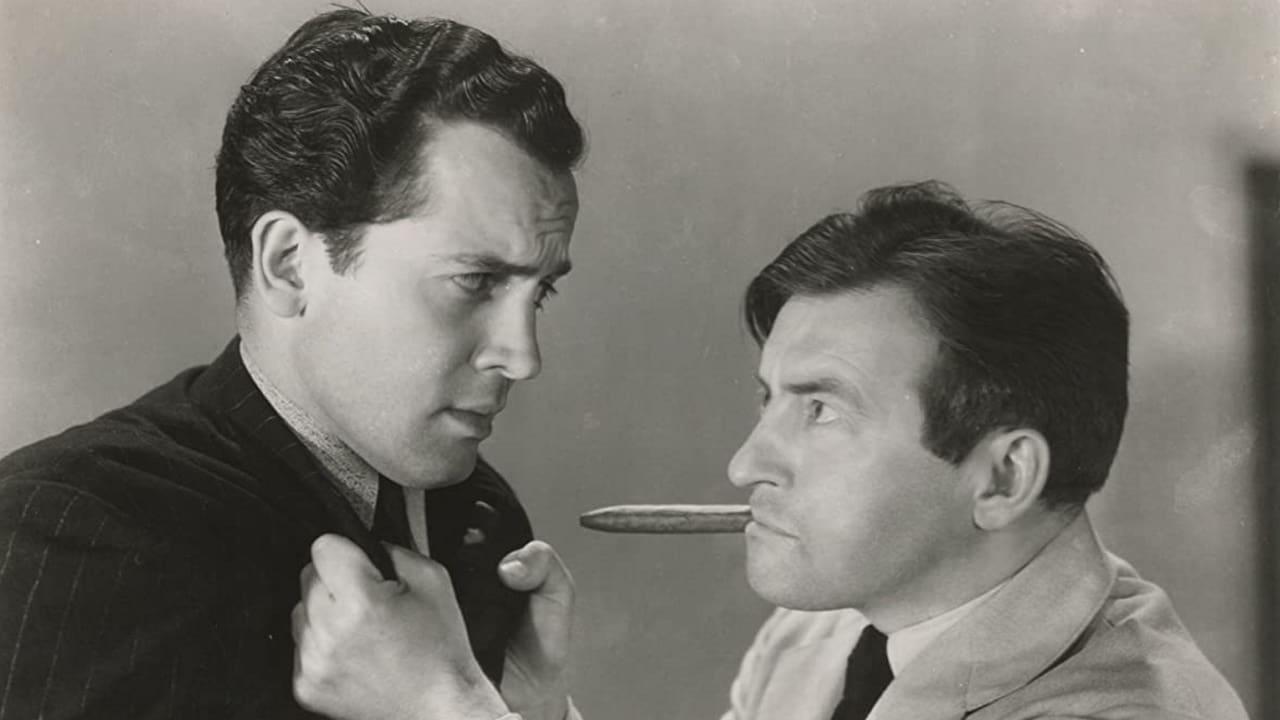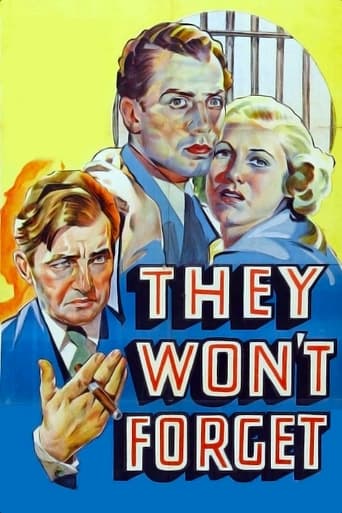

Wow! Such a good movie.
... View MoreThe Worst Film Ever
... View MoreIt's fun, it's light, [but] it has a hard time when its tries to get heavy.
... View MoreThis is a small, humorous movie in some ways, but it has a huge heart. What a nice experience.
... View MoreMary Clay, played by Lana Turner (living up to her sweater girl fame) very early in her career is a student at a small southern town's business college. She has a crush on her teacher, Professor Robert Hale, played by Edwin Norris. Hale, is a man from the north - not really welcomed in a town that has a parade for Confederate Memorial Day. After the class was dismissed, Mary and a friend went for a soda and Mary forgot her vanity case. She went back to the school and was murdered. Local newspaper staff bursts into Hale's apartment, tells Hale's wife that he's in jail, and after she faints, newsmen search the apartment, taking a honeymoon photo, searching through drawers. This movie demonstrates how a quest for political power can taint a trial. Being an "outsider" can make it difficult for a fair trial. Although this takes place in the south, mob justice can and has occurred all over the country during the 1920's and 1930's.
... View MoreA pretty good story of the arrest, conviction, and lynching of a New York teacher (Edward Norris) in the South, blamed for the murder of a young Mary Clay (the braless Lana Turner) of which he may or may not be guilty. The ambitious DA who nails him is Claude Raines. Defense is provided by Otto Krueger. There are other familiar faces in the film, directed for Warner Brothers by Mervyn LeRoy.I wonder what the folklorist Claude Levi-Strauss would make of this. He believed that people thought in categories, that thought was like language. One word was never like another word. Things were either the same or not the same. Likewise this movie seems to have very little in between one thing and its opposite. Levi-Strauss would probably have applauded.The movie gives us North/South, Memorial Day/Decoration Day, Guilty/Innocent, Life/Death, Reason/Emotion, and a host of other oppositions. (It leaves out Christian/Jewish from the original case of Leo Franks.) The relatives of Mary Clay stop a train carrying the convicted suspect, who is about to be pardoned by the governor, and they hang him off screen. None of the townspeople seem to have any doubt about what's going to happen. And nobody seems to disapprove. They don't even mourn the victim, Mary Clay. Their shock turns immediately to rage without any intervening period of grief. The opposite of rage seems not to be sorrow for the lost Mary, but moral innocence. ("I didn't do it!", all the possible suspects shout.) I suspect, in a way, the movie misses the point. It presents the story as a simple miscarriage of justice, prompted by the hostility of an insular community to an outsider. But, in essence, a lynching doesn't necessarily have to be the carrying out of some vernacular vision of justice. That's not the point. Nor is, "This'll teach 'em a lesson."One important point of a lynching, perhaps the main point, is that it expresses community allegiance. It's a rite of intensification whose real purpose is not that different from the Memorial Day parade with which the film starts. It's like the Fourth of July or Christmas. Photos of lynchings usually show some of the spectators grinning at the camera. All that's missing is the fireworks. The significance is that this is an important community event in which WE were brave enough to take part. Once the smoke of battle clears the prevalent emotion is not the residue of rage but pride.Some of the writing is pretty good. An example. During jury deliberations one man finds a note in his pocket: "Vote Guilty If You Feel Like Living." He's been holding out for the man's innocence. Now he tells the others angrily that he'll stick to his principles and not be swayed by threats. Another jurist, an elderly and avuncular type, explains to him that he's just worried about what people will say. It takes courage to disregard a death threat and vote guilty anyway. Nobody will think the worse of him if he votes along with the others. It's a smooth way of handling a truculent dissident. Vote guilty DESPITE the threat to kill you if you don't. That's the way a real man would do it. What a sales pitch, and delivered with such quiet confidence. Raines' prosecutor is equally adroit. "They say we're prejudiced against Yankees. Let's show them we're NOT prejudiced by hanging this guilty one and leaving the others alone!" The acting is a little overwrought, on everybody's part, the direction is functional and the story, though camouflaged, states itself quickly and then ends without much wasted motion. Even a shot of a train rattling smokily over a bridge is under cranked so it appears in accelerated motion. The court and the press are both phony and should be jailed themselves, but they're not. It's a rather bitter ending when Raines and a reporter are watching the murdered man's wife leave town and the reporter muses, "I wonder if he was really innocent," and Raines dispassionately agrees that it's a good question. The justice system is certainly an efficient way of delivering pain to a lot of people.
... View MoreThis may well be the most depressing movie ever made. Based on a notorious murder case, the audience is spared nothing. I think it took guts for producer Mervyn Leroy to make this film. Many theaters refused to show it. The role of a lifetime for actor Claude Rains, I was impressed by the performance of the actress who plays the wife of the victim of a trial that never should have been. It takes a strong stomach to sit through until the end. The film did win awards, but the Academy of Arts and Sciences was afraid to touch it. In real life the victim of the miscarriage of justice was exonerated many years later, but the political career of the Governor who tried to commute his sentence was ruined.
... View MoreIt begins with a disclaimer that all characters are entirely fictitious, etc. etc., and cites as source material a novel, but you can't fool us: It's the Leo Frank trial of 1915, updated to the then-present-day South and with Frank's Judaism carefully removed. Other than that, the details are surprisingly close to the actual trial, and the downbeat ending chillingly mirrors reality. Warner Brothers, known in the 1930s as the socially conscious studio, had a message to flog, and in this case it goes a bit overboard: No character has more than one dimension, and even that excellent actor Claude Rains, as the DA, snarls and rolls his eyes and gesticulates wildly, overdoing the blind ambition bit. But for its day it's a pretty brave and out-there indictment against mob violence, bigotry, and sensationalism, particularly the latter. Indeed, the message one takes from it today is that the media hasn't really grown worse in the intervening years -- there's just more of it.
... View More